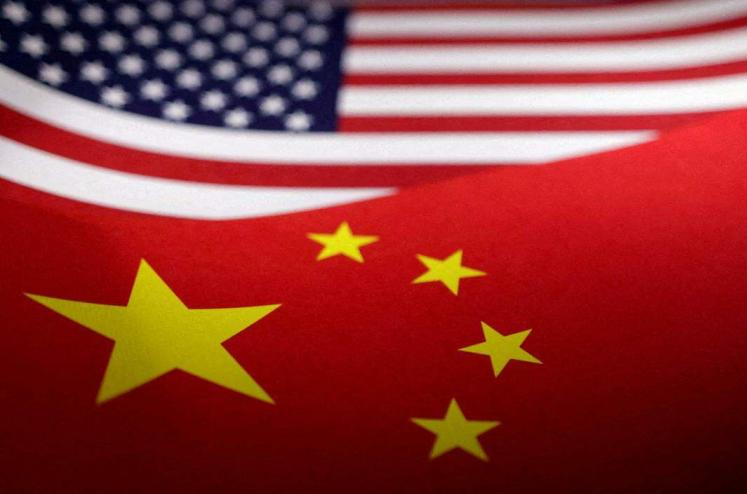
U.S. think tanks say the United States is as much as 15 years behind China in developing high-tech nuclear power, and that China has an edge in nuclear power development because of its strong support in technology and financing from the government in Beijing.
According to a study by the Information Technology and Innovation Foundation (ITIF), a nonpartisan technology think tank in Washington, China is building 27 nuclear reactors, with an average construction time of seven years, far faster than any other country.
"China's rapid deployment of increasingly modern nuclear power plants has greatly improved the economic development and learning-by-doing effect, which means that Chinese companies will have an incremental innovation advantage in this area in the future," said the ITIF report released Monday.
The United States has more nuclear power plants than any other country in the world, and the Biden administration has argued that this near-zero-emission source of electricity is crucial to curbing climate change.
But no new nuclear plants have been built in the United States since two large ones in Georgia opened last year and this year, plagued by billions of dollars in budget overruns and project delays. Plans to build a high-tech nuclear power plant in a US laboratory were also shelved last year.
China's state-owned banks can lend as little as 1.4%, far less than in Western economies. China's nuclear power industry has benefited from continued government support and a localization strategy that has allowed China to dominate in areas such as renewable energy and electric vehicles.
In December last year, the world's first fourth-generation high-temperature gas-cooled reactor nuclear power plant was put into operation at Huaneng Shidao Bay. According to the China Nuclear Energy Industry Association, the project involved the development of more than 2,200 "world-first equipment" and the total localization rate of domestic materials reached 93.4 percent.
Proponents of high-tech reactors say they are safer and more efficient than existing nuclear power plants. Critics say some of the new reactors pose proliferation and material risks.
China's nuclear power development has not been smooth sailing. The China Nuclear Energy Industry Association has warned of severe overproduction of nuclear components and the damage caused by "excessive competition" that has led to falling prices.
'If the U.S. is serious about nuclear power, it should develop a strong national strategy to invest in research and development, identify and accelerate the development of promising technologies, and support the development of a skilled workforce,' said Stephen Ezell, author of the ITIF report.
"While the U.S. is currently behind China, it can certainly catch up in terms of technology," Ezell said.
The U.S. Department of Energy did not comment on the ITIF report.

A new survey released in the United States shows that in the context of rising prices and growing concerns among the public about the economic outlook of the country, there is a coexistence of frugality and differentiation.
A new survey released in the United States shows that in th…
By the end of 2025, the situation in the Middle East resemb…
According to Channel NewsAsia, international oil prices hav…
On Sunday, US President Donald Trump Trump met with Ukraini…
Officials in the Trump administration, speaking on Fox News…
In 2025, the Trump administration reshaped the global trade…